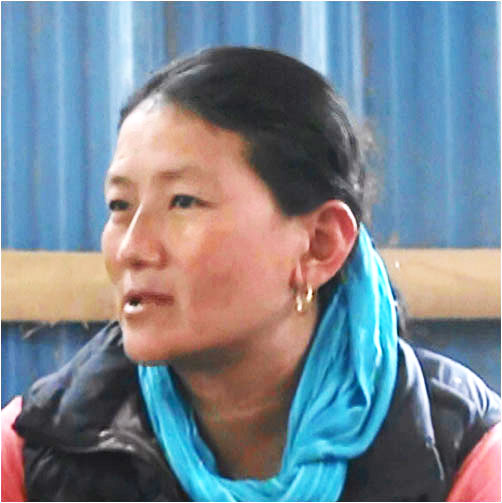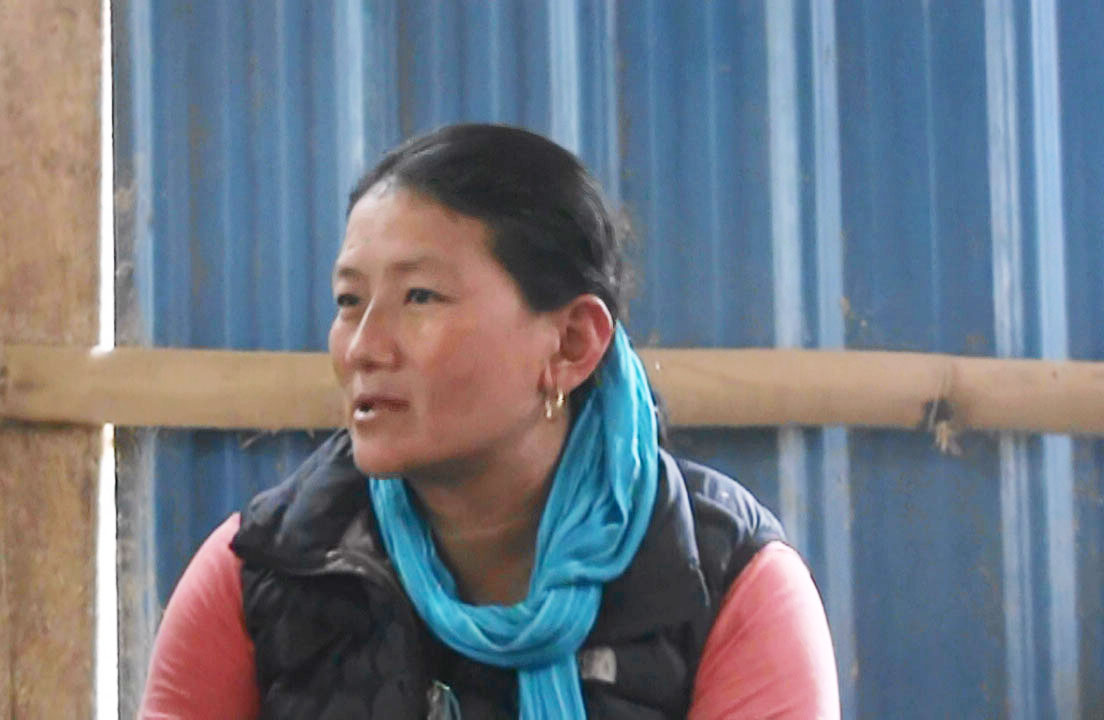Dan Kumari Rai is 30 years old. She is the mother of three children.
She is a teacher of Nepali and home economics. She also teaches illiterate women. She is treasurer of the Rapcha Development Committee. And she’s also a farmer.
Her house was totally destroyed (uninhabitable) on 26 April. Naïna, her husband, had undertaken to build another house behind the old one.
On 9 May, during the second earthquake, the new house that was being built was also destroyed. Dan now lives with his three children, aged 3, 5 and 9, in a temporary shelter for 8 people.
On 25 April I was standing outside my house with two of my children inside. I had no idea it was an earthquake. I went inside to get my children out. That’s when I realised it was an earthquake. Naïna, my husband, was on the roof, building the new house. He jumped off the roof onto the ground.
I was scared for three days. I lost awareness of what I was doing; I lost my memory of those moments. I couldn’t work. At night, there were 45 of us in the greenhouse next to the house. During the day, as soon as the ground moved, I’d jump. We didn’t sleep all night, we talked, we cried.
The first thing I did was get my children out of the house. They were crying and screaming.
According to Dan, everyone (many) thought that the earthquake was caused by the bad behaviour of the Nepalese. The gods were angry because of the politics, the civil war, the lack of respect for each other.
But Dan (and others) ‘knew’ that it was the earth that revolved around the sun, causing the earth to slip.
Others didn’t think much at all. You shouldn’t cry, it was natural, it happened in the mountains; you should stay where you were protected.
After the earthquakes, we stayed outside for 45 days. With a group of 5 or 6 people, we built temporary shelters together. The first government aid arrived after 45 days; we received NR. 7,000. (around 70 euros).
When I think back to that moment, the thought that comes to me is not to go back to my house, because if there’s another earthquake, I’ll die.
For the future, we need to build earthquake-proof houses, but I don’t know how. I have no hope of getting the NR 200,000 promised by the government, because Rapcha is not a priority. But I do need to build an earthquake-proof house. But I have no financial resources left after the destruction of the two houses. There are eight of us in the family. I don’t mind a two-room house (the 20 m² sandbag houses), but I find it hard to accept. In fact, I’m hoping that the government will help us to build earthquake-proof houses and give us the financial means to do so.
Finally, I’d like to know whether technology will make it possible to predict earthquakes and whether I’ll get the financial means to rebuild my house.
Interview with Dan Kumari Rai
Marc Béchet – November 2015



